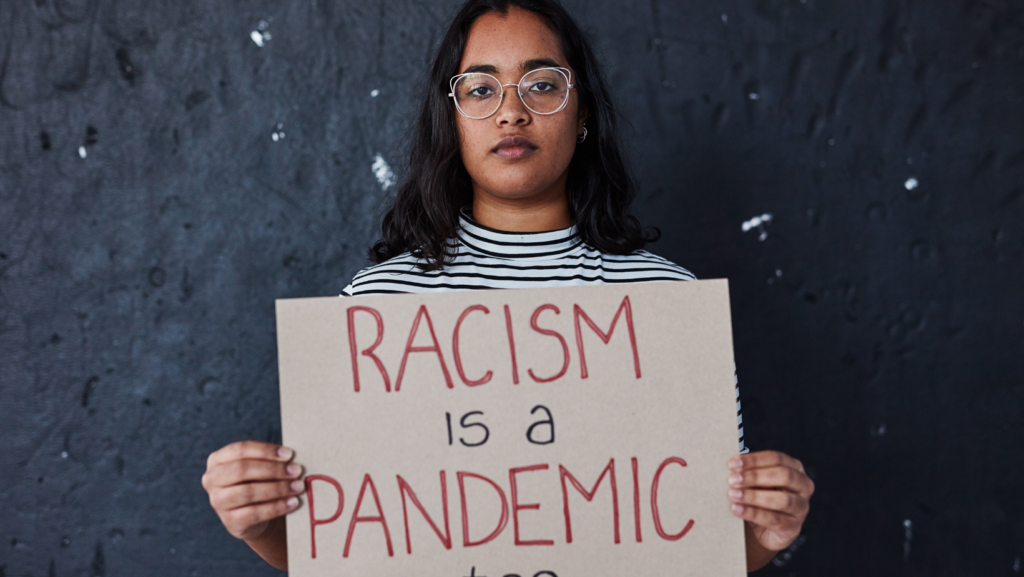Indigenous cultures thrived for tens of thousands of years before the present colonial era, during the last 500 years. They had a far better formula for mankind than we do today.
Long before hashtags and hustle or scam culture of colonialism, before self-branding and remaking replaced community, Indigenous cultures around the world practiced ways of living that prioritized connection to each other and the earth, shared purpose, and emotional well-being. They didn’t chase happiness—they cultivated it through systems and relationships designed to support collective life. In a time when violence, depression, and loneliness are rampant despite our social media “likes” and “connections,” it’s worth asking: What did these so-called “primitive” /”savage” / “Saracen,” non-Christian, societies know that we’ve forgotten or destroyed?
The truth is, many of the traditions dismissed by Western colonial and imperial arrogance as outdated, savage, or inferior were, in fact, carefully constructed and superior frameworks for a more meaningful human existence. Happiness, in these cultures, avoided individual pursuit of trivial things like a medium of exchange—money and hoarding of resources. It was a shared achievement, rooted in mutuality, reverence for the earth, and deep social accountability. Ancient people displayed social behavior that kept communities intact. Their social structures made everyone visible. Their norms assured that no one got left behind. You could not starve or feel lonely because your community took care of everyone. You had no need to feel destitute or keep up with neighbors beyond your means.
The Potlatch: When Giving Was More Powerful Than Getting
In the Indigenous societies of the Pacific Northwest—among the Haida, Tlingit, and Kwakwaka’wakw—the potlatch ceremony functioned as a deeply meaningful social and economic ritual. Chiefs and community leaders would host elaborate gatherings where they distributed vast quantities of goods: blankets, food, carved copper, and tools. In some cases, they even burned wealth in front of guests, not as a gesture of wastefulness, but as a demonstration of abundance and strength.
To the Western eye, this appeared foolish. But the potlatch wasn’t about wasting—it was about redistribution. In these communities, People earned power not by hoarding wealth but by giving it away. Prestige came from how much you shared, not how much you kept. The ability to provide for others proved your worth to the community.
Community is Richness, Not Lone Ranger
David Graeber and David Wengrow write in The Dawn of Everything that systems like the potlatch challenge the dominant assumptions we have about economy and human behavior. Western capitalism tells us that scarcity creates value and that competition is natural. But here was a culture thriving on generosity, embedded in a social code that reinforced interdependence and social equity.
Hoarding and accumulation defines wealth. You are rich because you have more than others. But in a potlatch society, richness was communal. Everyone had access to what they needed, and the act of giving reinforced one’s ties to the social fabric. The idea of destroying or giving away excess wealth as a spiritual and communal act is almost unimaginable in modern consumer culture. Yet, it may be exactly what we need in an era where inequality is widening, and hoarding is glorified.
Land as “Highest and Best Use”-Wisdom from Aboriginal New Zealand
There is a profound distinction between how Indigenous and Western people perceive land. For Aboriginal New Zealanders, the land is not a passive commodity. It is alive, ancestral, and relational. You don’t own land—you belong to it. White people measure land by fences, walls or titles. Consequently, they fight wars and murder each other, and commit genocide in far off lands of other people, over land and the resources on them. The resources are normally more than enough to share. Notwithstanding, they typically want to hoard the value of those resources among a few. For Aborigibnal people, land is recognized in oral histories and paths across country that connect people, ancestors, and sacred stories.
This relationship with land is neither metaphorical nor symbolic. It is legal, social, and spiritual all at once. The land knows you, and you are responsible to it. Your rights come with duties. Your presence comes with accountability. This is not the extractive, colonial framework of land ownership we know in the West—this is land as kin.
Ancient People Can Save Us From Ourselves
In the Māori worldview, stewardship is captured by the principle of kaitiakitanga, or guardianship. The Earth is something you protect, not something you exploit. The is no real estate principle of “highest and best use” to signify just making money with land. Every generation is a steward for the next, tasked with ensuring that resources, ecosystems, and sacred places are intact for those who come after. There is no delusion that the land is there solely for profit. Instead, these Indeginous people understand that survival—physical and cultural—depends on a healthy, reciprocal relationship with place.
Let’s compare that to the European and Western model. The land is bought and sold like a stock certificate or any commodity. Demarkation in straight lines rarely takes account of the natural formations of mountains, rivers, or people that live there. Even today, companies mine mountains are until they collapse and rivers polluted. In addition, they reap until the soil is dead from monoculture crops. They clear forests until nothing grows turning greenary into deserts. The Aboriginal model shows us that happiness is comes from being in respectful and stewrdship-type relationship with land.
Ubuntu and the Power of We in a World Obsessed With Me
In a hyper-individualistic world that elevates personal achievement above all else, the African philosophy of Ubuntu philosophy offers a radical counter-narrative. Translated loosely as “I am because we are,” Ubuntu frames identity and value as inherently relational. You don’t exist in a vacuum. Your well-being is tied to the well-being of others. Consequently, your success means little if it doesn’t lift your community with you.
Ubuntu is not a social slogan. It’s a social ethic. It says your humanity is activated through others. Therefore, when someone suffers, your responsibility isn’t abstract—it’s immediate. It tells us that isolation is not strength and that a society built on self-promotion will eventually collapse under the weight of its own ego. A friend of mine liken it like a snake that continues to eat its tail.
In modern Western society, we are bombarded with messages of personal branding, individual hustle, and self-optimization. Even happiness is framed as a product of individual effort. You must meditate harder. Eat cleaner. Exercise more. Earn more. Smile more. All alone.
Ubuntu reminds us that true happiness is interdependent. It reminds us that joy shared is joy multiplied. That if your neighbor is hungry, your meal is incomplete. That if a child suffers in your community, your peace is compromised. This is not weakness. It is ethical maturity.
Three Practices We Can Begin Now
Indigenous cultures didn’t just theorize happiness—they practiced it. If we want to remember what they knew, we have to reintroduce daily rituals that root us back into community, reciprocity, and place.
First, practice gift-giving without expecting anything in return. Inspired by the potlatch, this means offering something of value—your time, a skill, a meal, a book—with no strings attached. The act itself builds trust and warmth, quietly resisting a world obsessed with transactions.
Second, reconnect with your environment as something more than real estate. Find out the original name of the land you live on. Speak it. Learn about its history. Practice a kind of place-based gratitude that honors the earth’s legacy and resilience. This aligns with the spirit of kaitiakitanga—caretaking as a form of belonging.
Finally, share your success. Not just as a humblebrag online, but as an actual distribution of opportunity. If you get a grant, mention someone who inspired you. If you build a platform, open it to those whose voices are marginalized. This is Ubuntu in practice: “I am because we are.”
The Ancestors Were Right
In chasing endless productivity, likes, and dollars, we have forgotten what it means to live with dignity. To belong, to contribute, and to feel. The Indigenous cultures we too often dismiss as outdated or irrelevant were never lacking—they were wise.
They taught us that wealth is something you give, not just something you keep. That land is something to care for, not conquer. That identity is formed in the crucible of community, not on the altar of the self.
As we navigate crises of climate, capitalism, and connection, their wisdom is not a relic. It’s a roadmap.
We don’t need to reinvent happiness.
We just need to remember it.
The ancestors already showed us how.



